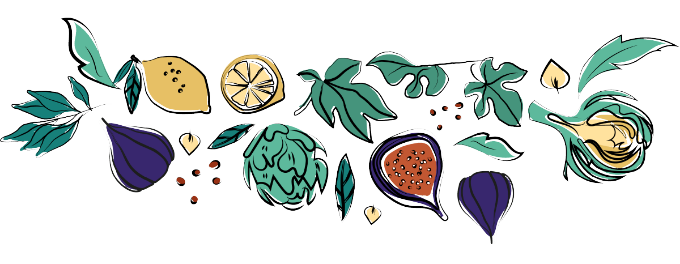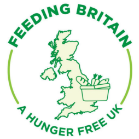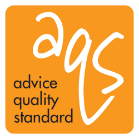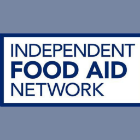Nutritional Report Evaluation
May 09, 2022
Intro
In March 2021, a Nutritional Analysis of a standard Sufra NW London food parcel was carried out by a registered nutritionist, with the support of local university nutrition students. The focus was on a standard ‘1-2’ person parcel, and snapshots of several packed parcels were taken to produce the report. More can be read about the methodology in the full report, available here.
Sufra has always been interested in the link between poverty and malnutrition, and keen to ensure that the food distributed through the food bank is varied and nutritious. Before the pandemic, when space permitted, guests were able to choose the items that they took away, selecting a certain amount of items from each food group. In this way, guests had a lot more agency over their food choices, while the form ensured each food group was included.
Covid-19 meant that the Sufra Food Bank model changed to pre-packed parcels, moving away from a shopping list. Whilst this meant that the risk of cross-contamination was reduced, guests could be served without entering and crowding the building, and parcels could be packed safely, one of the biggest knock-on consequences was that guests have not been able to choose each item of their parcel, and therefore we become significantly more responsible for the nutritional value of the contents.
At this point, Sufra NW London commissioned a report on the nutritional value of the parcel, seeking recommendations on how to improve.
This evaluation outlines the recommendations that we have taken from the report, and the particular changes that we made as a result.
Context
There are shocking statistics available about the health of Brent residents, including that in 2019 52% of adults were registered as obese. The same report notes that compared to national averages, Brent residents have significantly higher than average instances of diabetes, further compounded by predisposition of those in BAME communities. Brent residents have reported disproportionate numbers of fast food shops around the borough, while also reporting ‘food deserts’, which are vast areas where affordable and nutritious fruit and vegetables are widely unavailable.
While these issues existed beforehand, the Covid-19 pandemic has further embedded these health issues into the borough, through the sheer number of individuals pushed into poverty during this time. It is widely recognized that ‘a two-way link exists between malnutrition and poverty, creating a vicious cycle with each fueling the other’. In fact, actions from the Brent Poverty Commission Delivery Plan outline further plans to embed food banks and food aid to support those struggling as a result of financial pressure during Covid. While we are working towards a society free of food banks, we recognise our responsibility to ensure that as far as is appropriate we ensure the food distributed can support the nutrition of its recipients, to promote good health and wellbeing.
Considerations
While it is important to ensure the food parcel is nutritionally balanced, there are also some key considerations to make.
Recommendation 1 advises we decrease the sugar content, which we have actioned. For the smallest parcel, we have removed the 1kg bag of sugar. Instead, we will have this item available for guests to request when they collect, which (based on the estimated usage in the report) is likely to be once a month (or 1 in every 4 parcels collected). However, this does bring up an interesting discussion around the place of sweet treats and snacks in food parcels. While removing snacks, which are often sugary, could be a quick fix here, we recognise they have a purpose beyond simply nourishing the guests. As a food bank we are in no way gatekeepers of unhealthy food items, and recognise that the option of a treat has obvious mental health benefits, and their inclusion in the parcel demonstrates clearly that just because you are experiencing poverty, you still deserve to enjoy the nicer things in life. For this reason, snacks will still be included when possible.
Feedback from food bank guests informs us that guests often eat other meals too, alongside meals prepared with parcel ingredients. We, of course, cannot account for these, and therefore know that guests also receive nutrients from elsewhere. This is relevant to recommendations 3 and 4, where common items like yoghurts and milk may be consumed. We also regularly receive surplus donations, from City Harvest and The Felix Project, of both milk and yoghurt (and eggs and fish – two other key sources of iodine) that are distributed alongside food parcels. These were not included in the nutritional report as they are not guaranteed, however our supply of these items is reasonably reliable and consistent. For this reason we will not consider purchasing these items as per the recommendation.
Finance is also a necessary consideration. At the time of writing this report, we are purchasing around 70% of stocks, while donations make up the rest. In the case of reducing sugar, where jam is currently purchased at 90p, sugar free jam is £1.28. This disparity in price between ordinary and sugar-free options is relevant across the board.
Lastly it is important to highlight that, as the report concludes, many health issues and side effects from malnutrition prevail after a sustained period of time. Food parcels are not a long-term solution to poverty, and therefore individuals should not be living off of the contents for extended period of time. Other Sufra services, such as our Refugee Support and Welfare Advice Drop-Ins aim to support guests towards financial stability, and independence of the foodbank. We also partner with Brent Hubs, and have a Sufra Food Bank Policy to ensure all guests that require more than 6 parcels speak with an advisor to access support and guidance. These processes are in place with the aim that no one is sustaining themselves solely on food parcels long term.
Changes made
Based on the recommendations within the report, and taking into account the considerations mentioned above, we have re-written our packing guidelines to take into account the advice.
Some key changes that we have made are the following
- We have removed the 1kg sugar bag from the 1-2 person parcels, instead this can be requested alongside other extras when guests collect their parcels.
- We have edited the sizes of our parcels. Rather than stretching the smallest parcels for 1-2 people, we have reorganised the sizes to have 4 different sizes, rather than 3. Our new parcel sizes are -
- 1 person
- 2-3 people
- 4-5 people
- 6+ people
It is important to note that our packing lists are used as guides, and are therefore exact contents will always vary according to stock and not a list of guaranteed items. Where items are unavailable, suitable substitutions are made to ensure the parcel size remains consistent.
Other priorities
While these adaptations to our food parcels make good strides towards improving the immediate nutrition of the parcels, we also have further priorities to improve the general health of our guests.
- Our priorities always remain on supporting guests away from food aid, and ensuring we address the root causes of their situation. This includes our internal advice service, working alongside other partner organisations to ensure we have a multi-agency approach, incorporating advice and guidance into our food aid policies and conducting one-off events focusing on particular offers of support.
- A focus on our St Raphael’s Edible Garden Market, where anyone can purchase organic fresh fruit, vegetables and herbs on a ‘pay-as-you-feel’ model. Our Garden Market ensures that not only guests, but also local residents and anyone who wishes to come along, has access to nutritious and affordable food. The market also provides the opportunity for everyone to learn about the origins of the food and takeaway the knowledge to grow their own if they can.
- Researching alternative models of food distribution that ensure that guests have increased agency over their food choices and carry their own responsibility to manage their health and wellbeing. This includes a social supermarket, a pantry-model and cash-first approaches such as grants, vouchers and bank transfers.
- Our Food Academy, on hold due to the pandemic, will be back up as soon as possible. Each round of the academy will teach participants a wide range of nutritious recipes, made with local and affordable ingredients.
Latest News











